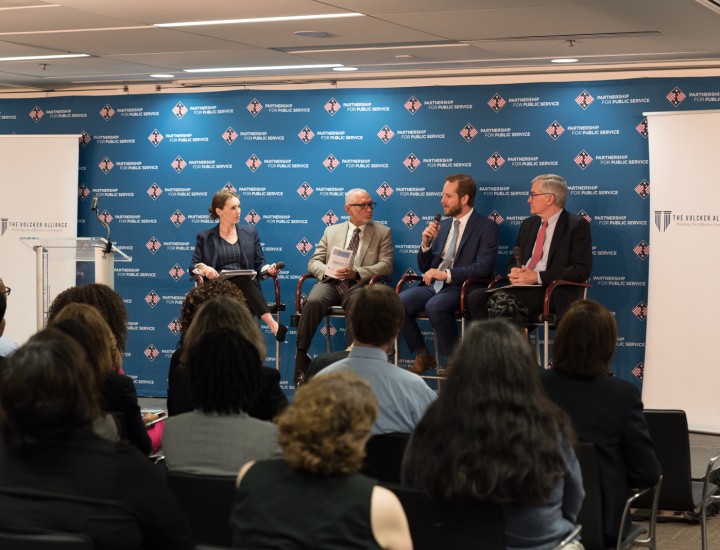New OMB Plan Could Alter the Workforce, Says Kettl

On January 23, President Donald J. Trump signed an executive order instituting a federal hiring freeze for 90 days, pending a plan from the directors of the Office of Management and Budget and the Office of Personnel Management ‘to reduce the size of the federal government’s workforce through attrition. In a Federal Times article published last week, Volcker Alliance Nonresident Senior Fellow Don Kettl suggested that while the federal hiring freeze captured much attention, the future of the federal workforce and its priorities will be largely determined by the OMB's plan.
“The impact that this executive order will have in actually doing that is very much up in the air. The more important thing is the Phase 2, which is the creation of the downsizing plan,” said Don Kettl, a professor at the University of Maryland’s School of Public Policy and a nonresident senior fellow at the Brookings Institution. “What kind of plan will it be in trying to reduce the size of the federal government through attrition? That really raises two questions: First, does the size of the federal workforce need to be reduced. And the second is, if you are going to reduce it, does it make sense to do it through attrition?”
Professor Kettl also suggested that the rapid diminishment of the workforce by 2020 may leave a significant skills gap.
“The one thing we know about doing it through attrition is that you are never going to end up with the kind of workforce that you need because the people that are leaving aren’t necessarily the jobs you need to replace,” Kettl said. “And the jobs you need to replace aren’t necessarily matched by the people who are leaving.”
This puts the OMB nominee Mick Mulvaney in a very difficult spot, according to Professor Kettl:
“If you look at what would be required to be tougher on cybersecurity, if you look at what would be required to build a new wall — that’s really an acquisitions problem,” Kettl said. “If you look at what a replacement of the Affordable Care Act will mean — it won’t mean zero federal role. It’s going to mean a different federal role, depending on what the Republicans have in mind, and that in turn is going to require a collection of highly-skilled workers who are out there who know how to manage these very complex relationships with private insurance companies. Trying to manage your way to that through attrition-based strategies could prove very difficult."


